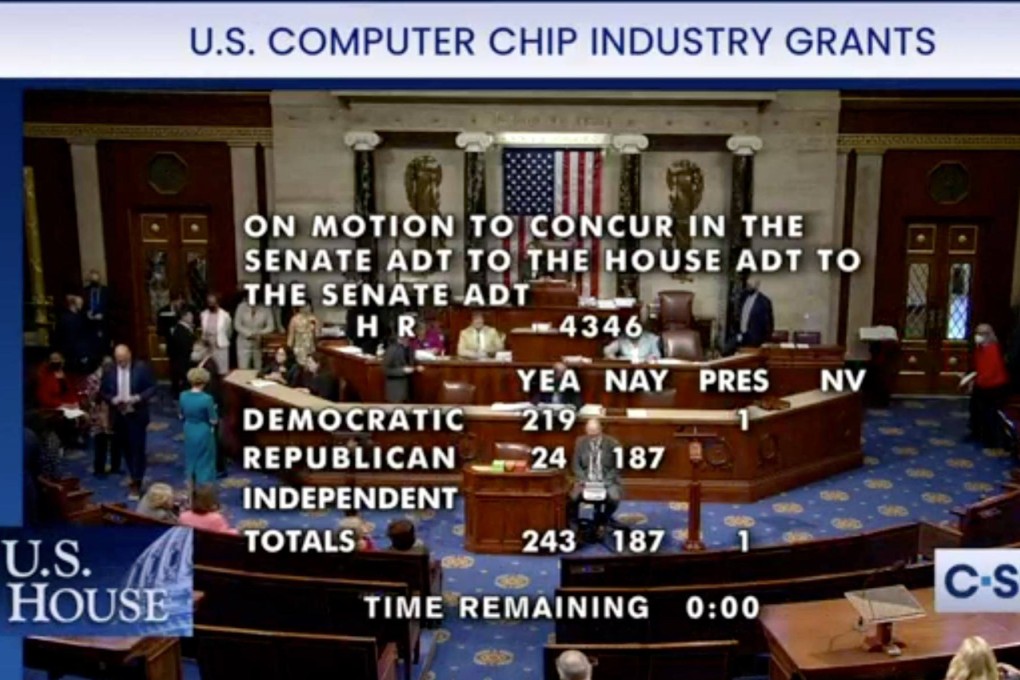US House approves Chips Act to subsidise and speed up semiconductor production
- President Joe Biden has said he will sign the bill, which as seen as essential in helping the US become more self-reliant as it competes with China
- A shortage of microchips and worries about the supply chain and national security lead to bipartisan support for the measure

The US House of Representatives gave a final stamp of approval on billions of dollars in new funding for the US semiconductor industry on Thursday, putting a key component of Washington’s efforts to out-compete China on the verge of becoming law.
The House passage came just one day after the Senate cleared the bill on Wednesday with a bipartisan vote of 64-33. The House vote was 243 to 187, with 24 Republicans voting in favour and one Democrat voting “present”.
The legislation, known as the Chips and Science Act, will now go to US President Joe Biden’s desk to be signed into law.
“The Chips and Science Act is exactly what we need to be doing to grow our economy right now,” Biden said in a statement after the vote. “By making more semiconductors in the United States, this bill will increase domestic manufacturing and lower costs for families. And, it will strengthen our national security by making us less dependent on foreign sources of semiconductors.”
The bill includes more than US$52 billion in funding for semiconductor manufacturing and research, a vital technology in everything from military weapons to family cars, which the Biden administration has singled out as an urgent priority in US competition with Beijing.
The White House has said that a global chip shortage has played a role in causing high inflation in the US, and earlier this week, a senior Pentagon official called semiconductors “ground zero of our tech competition with China”.
